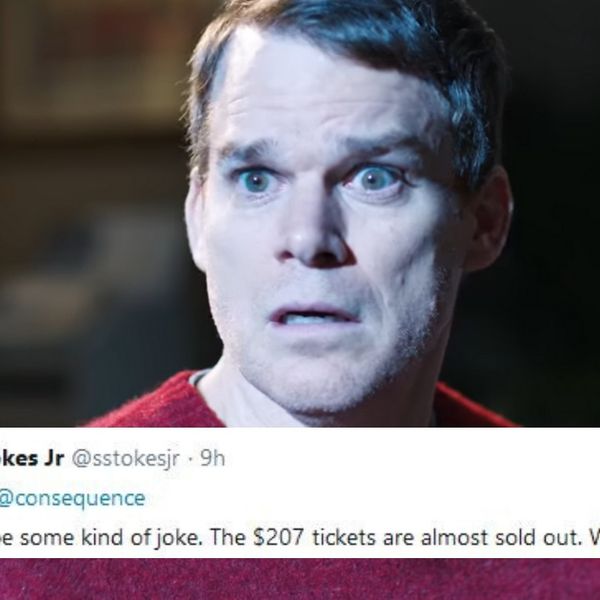August, 2004, LOS ANGELES - I have been privileged in my life to work with many groundbreakers, real pioneers in television, who have become legends. This month, I participated in three major conventions that celebrated three of these noteworthy individuals.
The first of these was a rarely produced convention built around the classic television series created by Rod Serling, "The Twilight Zone." This event was, for me, a tribute to the genius of a master storyteller and dramatist.
Serling was a writer whose work I first saw on the distinguished live television series "Playhouse 90" when I was a teenager. His dialogue was tough yet sensitive; real and yet poetic. His characters were strong, determined but flawed people. I was particularly impressed by his drama "Requiem for a Heavyweight" that starred Jack Palance. Serling won three Emmys for his writing among his many other awards. He saw television as more than a theater of personal human dramas but as a powerful medium for addressing issues of the times as well. Like other iconoclasts in television, however, he met resistance from the networks. Frustrated by the battles he had to fight, he came up with a creative solution. He would slip his controversial issues under the network radar, disguised as fantasy or science fiction. He created a new series titled "The Twilight Zone," and thus made television history.
 A year before I worked on the "Star Trek" pilot, I was cast in an episode of "The Twilight Zone" titled "The Encounter." It was a red meat acting role in a two-character drama with that fine actor, Neville Brand. Working on that episode was a tremendously fulfilling experience. As a fan of the creator of the show, I got an unexpected treat. That special bonus was the opportunity of meeting the man whom I had so admired as a youngster, Rod Serling. As the host of the series, he welcomed the audience at the opening and then the close of each episode in his deep, sonorous voice. He filmed these pieces in batches of about half a dozen, all in a few hours. Thus, actors working on the series did not necessarily get to meet Serling. So, it was a special thrill for me to watch him film his intros and closes, then to chat with him when he was finished. His voice was as resonant in life as in film and he was as warm and gracious as I had imagined him to be. All these memories from forty years ago came flooding back to me at "The Twilight Zone" convention.
A year before I worked on the "Star Trek" pilot, I was cast in an episode of "The Twilight Zone" titled "The Encounter." It was a red meat acting role in a two-character drama with that fine actor, Neville Brand. Working on that episode was a tremendously fulfilling experience. As a fan of the creator of the show, I got an unexpected treat. That special bonus was the opportunity of meeting the man whom I had so admired as a youngster, Rod Serling. As the host of the series, he welcomed the audience at the opening and then the close of each episode in his deep, sonorous voice. He filmed these pieces in batches of about half a dozen, all in a few hours. Thus, actors working on the series did not necessarily get to meet Serling. So, it was a special thrill for me to watch him film his intros and closes, then to chat with him when he was finished. His voice was as resonant in life as in film and he was as warm and gracious as I had imagined him to be. All these memories from forty years ago came flooding back to me at "The Twilight Zone" convention.
What a trip down the proverbial "memory lane" the convention was. So many of the actors who had worked on the series were there. Shelley Berman, Theodore Bikel, Terry Becker, with whom I had worked on "Voyage to the Bottom of the Sea," H.M. Wynant, who had also impressed me on so many "Playhouse 90" dramas, Lloyd Bochner, who I liked on the series "Hong Kong," Paul Comi, who played my cohort navigator on a first season episode of "Star Trek," France Nuyen, who played the Elaan of Troyus on an episode of "Star Trek" and so many others, were all there. The convention was one that brought back so many fond memories - and the most prominent presence there was the spirit of that venturesome and imaginative television pioneer, Rod Serling.
Then, I flew to Toronto, Canada, for a gigantic convention that combined four genres, sci-fi, anime, comics, and horror movies. It attracted over 25,000 fans. Any convention that might have any part of it dedicated to science fiction, by definition, would be paying tribute to Gene Roddenberry, the creator of "Star Trek" and another visionary iconoclast of television. His contribution to television legend would be well represented. Patrick Stewart and I were the "Star Trek" guests. On arrival in Toronto, I was alarmed to learn that Patrick could not make it due to an angioplasty procedure that had to be performed on him. I was assured that he was making good, steady recovery. In his place, Michael Dorn and Levar Burton of "The Next Generation" stepped in to fill the breach. The convention was an enormous success. The organizers told me this was the biggest gathering of its kind in Canada and I certainly believed them. It was huge.
 This popular convention had, for me, however, a different complication. I was contracted to do this August convention in Toronto many months before and I was also to be doing a very special convention - my dear friend, Jimmy Doohan's final public appearance - in June back in Hollywood. But when it was learned that Jimmy would, at long last, be receiving his star on the Hollywood Walk of Fame in August, the date of his convention was suddenly changed to the very same weekend that I was scheduled to do this Toronto convention. I had a contract and now a dilemma. I couldn't be in two places in two countries on the same weekend. Thanks to my business manager's good negotiating skills, I was released from the last day of the Toronto convention so that I could fly back to Hollywood to do the "Beam me up Scotty... One Last Time" convention. I flew in the dark of early Sunday morning on the "red eye" flight back to Los Angeles for the final day of Jimmy's last convention. It was a rough journey but it was for a beloved friend.
This popular convention had, for me, however, a different complication. I was contracted to do this August convention in Toronto many months before and I was also to be doing a very special convention - my dear friend, Jimmy Doohan's final public appearance - in June back in Hollywood. But when it was learned that Jimmy would, at long last, be receiving his star on the Hollywood Walk of Fame in August, the date of his convention was suddenly changed to the very same weekend that I was scheduled to do this Toronto convention. I had a contract and now a dilemma. I couldn't be in two places in two countries on the same weekend. Thanks to my business manager's good negotiating skills, I was released from the last day of the Toronto convention so that I could fly back to Hollywood to do the "Beam me up Scotty... One Last Time" convention. I flew in the dark of early Sunday morning on the "red eye" flight back to Los Angeles for the final day of Jimmy's last convention. It was a rough journey but it was for a beloved friend.
 This convention was the most personal, the most heartfelt, and more than a little bitter sweet. Jimmy had been diagnosed with early Alzheimer's, Parkinson's, and other diseases. I had lost my mother to Alzheimer's just two years before. I know from experience what challenges lie ahead.
This convention was the most personal, the most heartfelt, and more than a little bitter sweet. Jimmy had been diagnosed with early Alzheimer's, Parkinson's, and other diseases. I had lost my mother to Alzheimer's just two years before. I know from experience what challenges lie ahead.
But Jimmy was in fine spirits at the convention. He was rolled out to me in his wheel chair. He looked wonderful. His eyes sparkled with joy and his smile was radiant. When I bent over to him and said, "It's great to see you Jimmy," he repeated in a whispery voice, "It's great to see you, George." His hand had lost his familiar firm grip but he held on to mine and wouldn't let go. I love this man, this old pal, this guy I used to call my favorite drinking buddy. I introduced him to sushi way back when and he had become an enthusiastic sushi connoisseur.
 We had shared so much of our lives together - working on "Star Trek," doing conventions together throughout the world, even going into business together selling cosmetics. And, he is a first rate professional. When it came time to pose for photos with the cast, he was there smiling throughout. I suspected he was tired, but he has the resilience of a "black Irishman." Yes, he is Irish - although he has drunk enough Scotch to be able to claim a lot of Scotch in him. All the activity and excitement must have been exhausting for him, but he sparkled the whole time.
We had shared so much of our lives together - working on "Star Trek," doing conventions together throughout the world, even going into business together selling cosmetics. And, he is a first rate professional. When it came time to pose for photos with the cast, he was there smiling throughout. I suspected he was tired, but he has the resilience of a "black Irishman." Yes, he is Irish - although he has drunk enough Scotch to be able to claim a lot of Scotch in him. All the activity and excitement must have been exhausting for him, but he sparkled the whole time.
The unveiling of the James Doohan star on the Hollywood Walk of Fame was two days later on a Tuesday. So many of Jimmy's family, friends, colleagues, and fans were gathered on the sidewalk in front of the Hollywood Entertainment Museum. Jimmy's wife, Wende, stood beside him carrying their little four-year-old, Sara, and his children and his many grandchildren were scattered throughout the crowd.
 From the cast, Walter Koenig, Nichelle Nichols, Grace Lee Whitney, and I with guest stars Barbra Luna and France Nuyen were there to celebrate this happy day and tribute to Jimmy's career achievement. The bank of photographers and news cameramen punctuated the occasion with calls of "look this way," "now this way please," and "one more this way." The Mayor of Hollywood, Johnny Grant, began the ceremony with his usual flourish. In my congratulatory talk, I said, "This is a galactic day in this town filled with a galaxy of stars. We've gathered from throughout this planet to congratulate you Jimmy, and say to you, we love you. We thank you for your luminous talent. We thank you for the gift of an unforgettable character, that ingenious and beloved engineer who could fix anything. We thank you for who you are and we love you." Jimmy beamed as he clutched the small replica of his star and waved to the gathered fans and press. Jimmy was truly transported. This will be a day I will cherish in my memory.
From the cast, Walter Koenig, Nichelle Nichols, Grace Lee Whitney, and I with guest stars Barbra Luna and France Nuyen were there to celebrate this happy day and tribute to Jimmy's career achievement. The bank of photographers and news cameramen punctuated the occasion with calls of "look this way," "now this way please," and "one more this way." The Mayor of Hollywood, Johnny Grant, began the ceremony with his usual flourish. In my congratulatory talk, I said, "This is a galactic day in this town filled with a galaxy of stars. We've gathered from throughout this planet to congratulate you Jimmy, and say to you, we love you. We thank you for your luminous talent. We thank you for the gift of an unforgettable character, that ingenious and beloved engineer who could fix anything. We thank you for who you are and we love you." Jimmy beamed as he clutched the small replica of his star and waved to the gathered fans and press. Jimmy was truly transported. This will be a day I will cherish in my memory.










